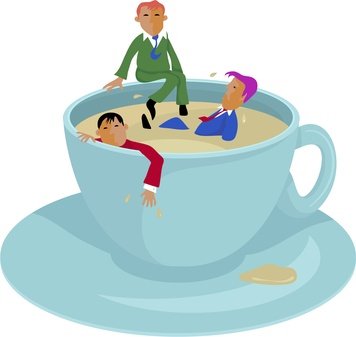
Well+Being Holistic Mental Health
“Emotional Health & Wellness Tips From The Therapy Couch And Other Places”

DBT Skills: Observe Your Thoughts, Reduce Your Anxiety
Find a comfortable spot to sit, either seated or lying down. Take a moment to focus on softening your body and releasing any tension in your shoulders. Close your eyes.
Focus your attention on your breathing. Observe what it feels like to be in your body, in this moment, as you slowly breathe in and then breathe out. As you spend a few minutes here, Imagine that you are riding the wave of your own breath. You feel safe.
Next, shift your attention to your thoughts. Begin to notice your thoughts, remembering that they are just thoughts. Nothing to do in this moment but simply observe. If you'd like, you can imagine that your thoughts pass by on a cloud, or perhaps, these thoughts are gently carried along on a stream.
No need to chase them away or hold on to them. Simply watching. They may even disappear on their own. If you find that you've become fixated on a particular thought or demand, notice how or what took you away from just observing and noticing, then gently bring your attention back to awareness and any thoughts. It's normal to find yourself becoming stuck with a thought. Your only task is to bring your awareness back to observation.

Substance Abuse And The Co-Occurrence Of Social Anxiety
Shyness and social anxiety is thought by experts to exist on a continuum, however, efforts to cope with this anxiety challenge can be extremely disabling. For many, social anxiety symptoms leads to avoidance of situations as well as using and abusing substances in an effort to cope. The co-occurrence of substance abuse, particularly alcohol abuse, is common among people who have social anxiety disorder according to the Anxiety and Depression Association of America.
Many diagnosed with this anxiety disorder begin to rely on alcohol as a coping mechanism to relieve social discomfort. While individuals may not experience full relief from their symptoms by using alcohol or drugs, they may experience enough relief to enable them to get through difficult social situations, which is reinforcing. Some studies report that the average lifetime prevalence of alcoholism among individuals with social anxiety disorder, as well as depression, may be as high as 20 percent. Many mental health professionals and addiction specialists would argue that this number is low.

